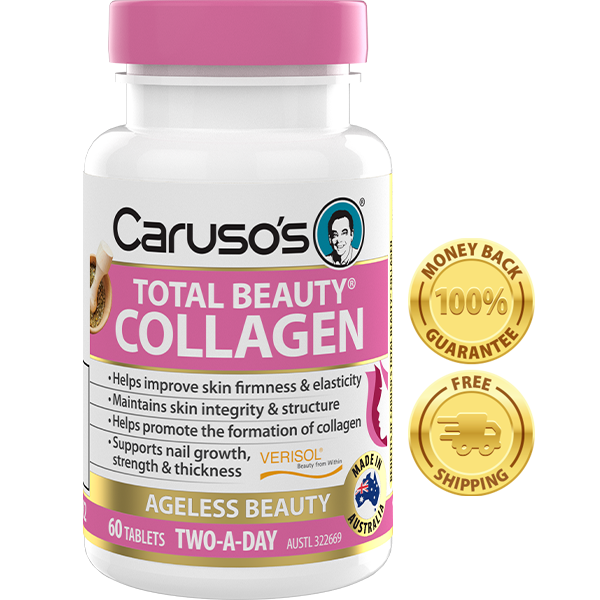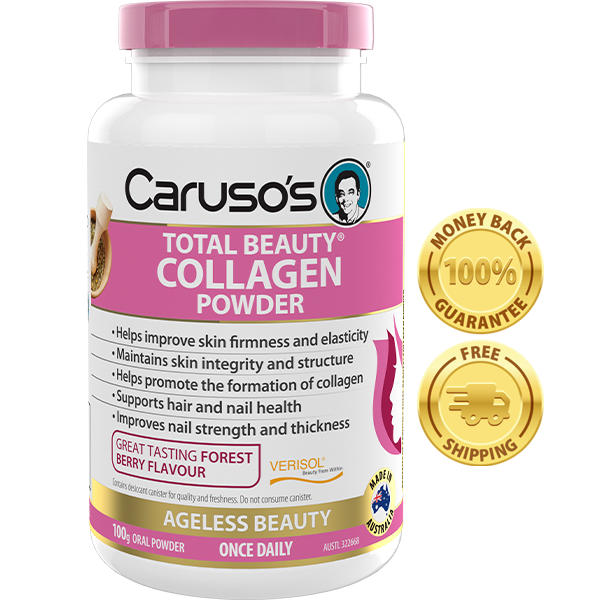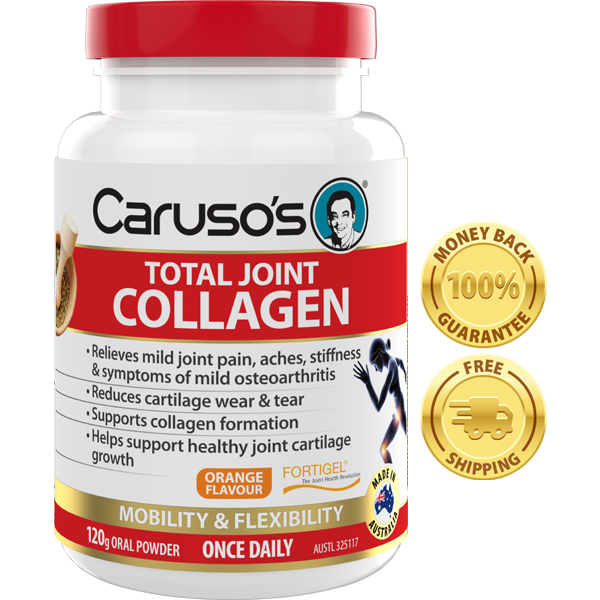
Ageing and Collagen
share
How can we balance our skin health needs when our lives can be so busy and exhausting, I hear you ask?!
Add to this our nutritional needs that change as we pass through each stage of our life. What we used to take when were younger, may no longer be enough to support us as we age. Yikes! But before you crawl up into a ball in frustration and despair, read on for some timely advice.
We try hard but day to day stresses, grabbing food on the run, and lack of exercise can lead us to reach for some reliable nutrition to support us. Whilst traditional sources of collagen are red meats, chicken, and fish, we also need good sources of vitamin c to make sure collagen is metabolised well in our body. We believe that those on restricted diets may be the only people who might find it difficult to source enough collagen each day, but we know that despite healthy food positioned at the front of the supermarket store these days, people often bypass it for the processed foods in large numbers. This is unfortunate as collagen is one of those proteins that every part of our body requires and can be beneficial to supplement with, especially as we age.
Collagen and Skin
One of the amazing qualities of collagen is in its ability to retain water molecules within the dermis, the secondary layer of our skin. With age, the skin's ability to retain moisture diminishes, resulting in dryness and dullness. This is important to know as one of the first things we notice as we age is the change in our skin’s elasticity which can lead to a loss of firmness. Once this occurs, the obvious signs of aging become more visible in the mirror each morning.
As if we needed any more benefits to convince us, further benefits for collagen can be found in supporting the dermis as we get older. Aging is associated with a reduction in collagen density and thickness in the dermal layer of the skin. The thinning of the dermis may contribute to a more fragile and delicate skin structure, making it prone to damage and injury. Providing the full spectrum of nutrients the skin needs to help us glow from the inside out can be achievable in every stage of our growth.
Collagen and Joint Health
The health of our joints starts to become more important to us as we age, with media attention around bone health being of paramount importance in an aging population. Collagen is a major component of cartilage, the flexible tissue that cushions joints and facilitates smooth movement. Age-related changes in collagen composition and structure contribute to cartilage degeneration, leading to decreased mobility.
Pain can be the first thing you may feel, which will trigger an urgent response to make it stop! Declining collagen levels in cartilage, tendons, and ligaments can result in joint stiffness, pain, and reduced range of motion. Loss of collagen integrity compromises joint health and function, impacting overall mobility and quality of life.
The good news is collagen provides support for so many areas of our body but especially our joints, their healthy function, mobility and flexibility. Overall, collagen is a vital structural protein that plays a central role in maintaining the health and integrity of various tissues in the body.
As we age, changes in collagen synthesis, composition and distribution contribute to the visible signs of aging, as well as age-related conditions such as joint stiffness and mild pain. Collagen plays a crucial role in the aging process, and understanding its relationship with aging is essential for grasping how it affects various aspects of our health and appearance.
Adopting healthy lifestyle habits, consuming a nutrient-rich diet, and incorporating collagen-supportive strategies can help slow down the effects of aging and promote overall well-being. Whilst dietary collagen should always be our first option, supplementation can help when we need additional support across our life.
Try it now

Caruso's Total Beauty® Collagen
Try it now

Caruso's Total Beauty® Collagen Powder
Try it now

Caruso's Total Joint Collagen
share
Stay Informed. Feel Your Best.
Get expert tips and actionable health advice. Be the first to hear about Caruso's product launches and receive exclusive promotional offers.
Join our newsletter today.


